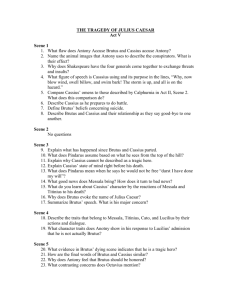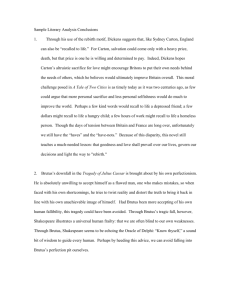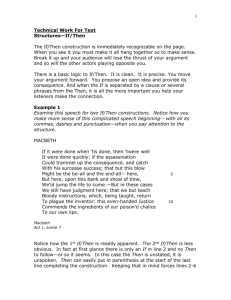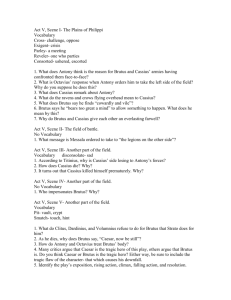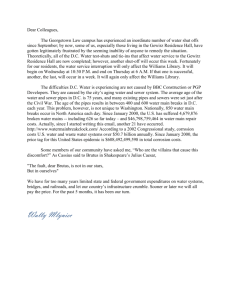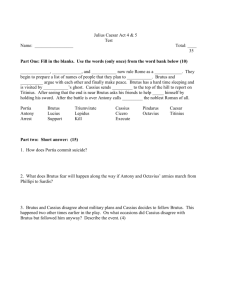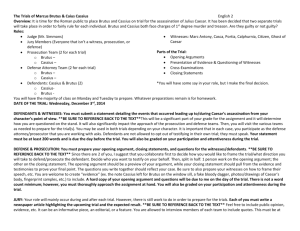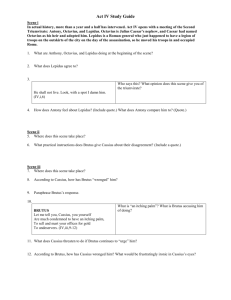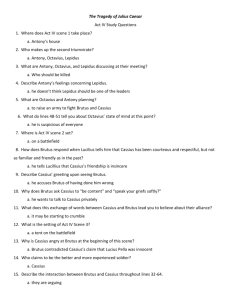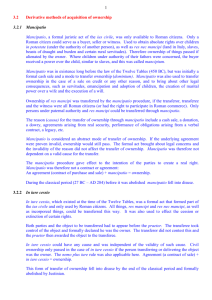Ceaser Essay
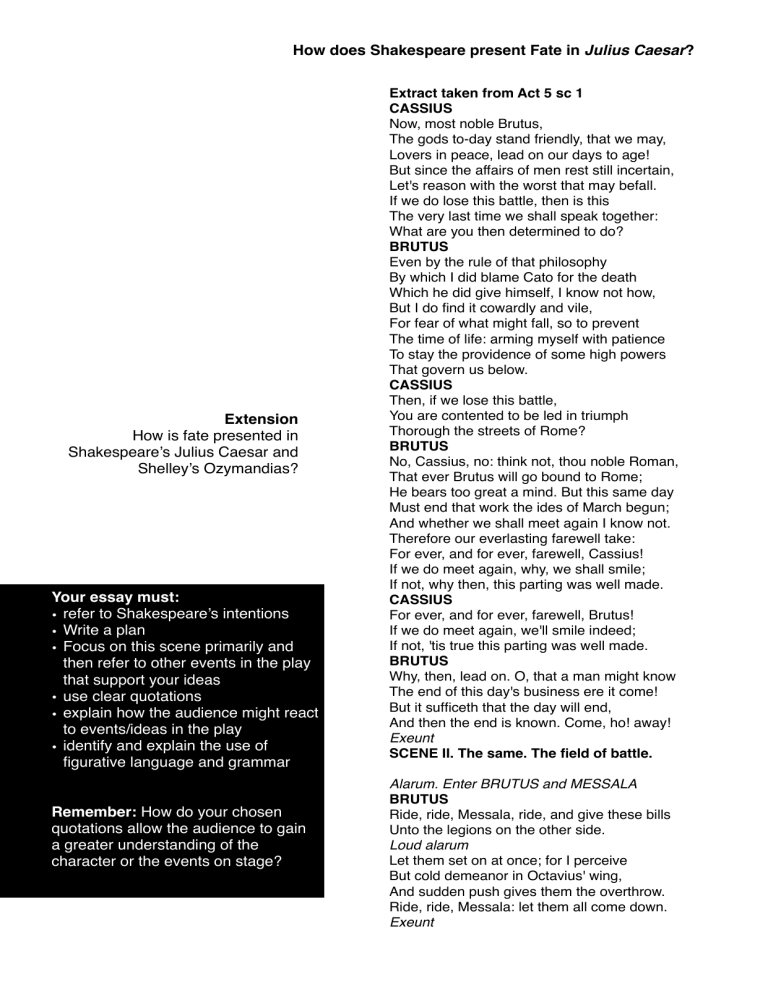
Extension
How is fate presented in
Shakespeare’s Julius Caesar and
Shelley’s Ozymandias?
Your essay must:
• refer to Shakespeare’s intentions
• Write a plan
• Focus on this scene primarily and then refer to other events in the play that support your ideas
• use clear quotations
• explain how the audience might react to events/ideas in the play
• identify and explain the use of figurative language and grammar
Remember: How do your chosen quotations allow the audience to gain a greater understanding of the character or the events on stage?
How does Shakespeare present Fate in Julius Caesar ?
Extract taken from Act 5 sc 1
CASSIUS
Now, most noble Brutus,
The gods to-day stand friendly, that we may,
Lovers in peace, lead on our days to age!
But since the affairs of men rest still incertain,
Let's reason with the worst that may befall.
If we do lose this battle, then is this
The very last time we shall speak together:
What are you then determined to do?
BRUTUS
Even by the rule of that philosophy
By which I did blame Cato for the death
Which he did give himself, I know not how,
But I do find it cowardly and vile,
For fear of what might fall, so to prevent
The time of life: arming myself with patience
To stay the providence of some high powers
That govern us below.
CASSIUS
Then, if we lose this battle,
You are contented to be led in triumph
Thorough the streets of Rome?
BRUTUS
No, Cassius, no: think not, thou noble Roman,
That ever Brutus will go bound to Rome;
He bears too great a mind. But this same day
Must end that work the ides of March begun;
And whether we shall meet again I know not.
Therefore our everlasting farewell take:
For ever, and for ever, farewell, Cassius!
If we do meet again, why, we shall smile;
If not, why then, this parting was well made.
CASSIUS
For ever, and for ever, farewell, Brutus!
If we do meet again, we'll smile indeed;
If not, 'tis true this parting was well made.
BRUTUS
Why, then, lead on. O, that a man might know
The end of this day's business ere it come!
But it sufficeth that the day will end,
And then the end is known. Come, ho! away!
Exeunt
SCENE II. The same. The field of battle.
Alarum. Enter BRUTUS and MESSALA
BRUTUS
Ride, ride, Messala, ride, and give these bills
Unto the legions on the other side.
Loud alarum
Let them set on at once; for I perceive
But cold demeanor in Octavius' wing,
And sudden push gives them the overthrow.
Ride, ride, Messala: let them all come down.
Exeunt
